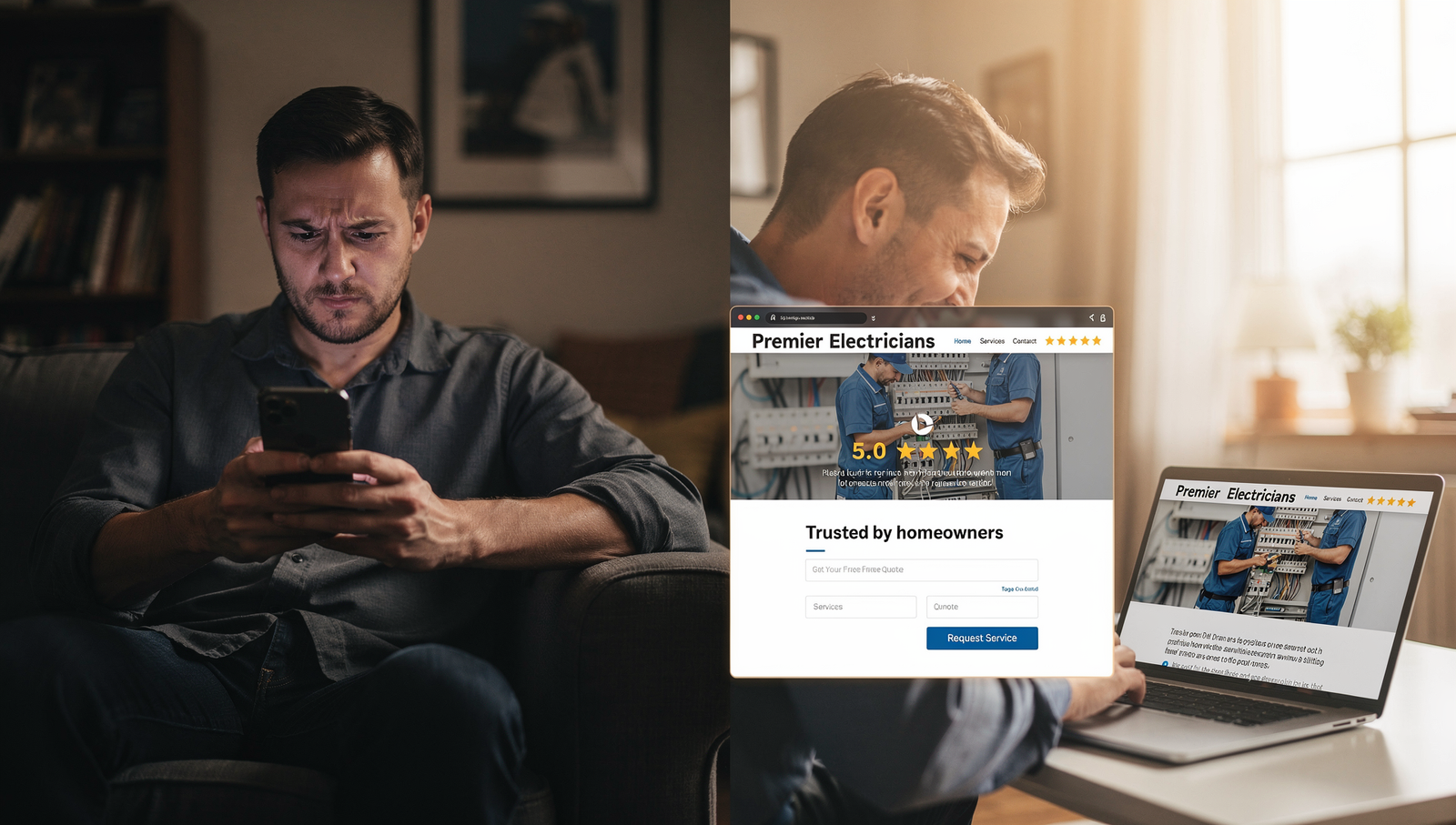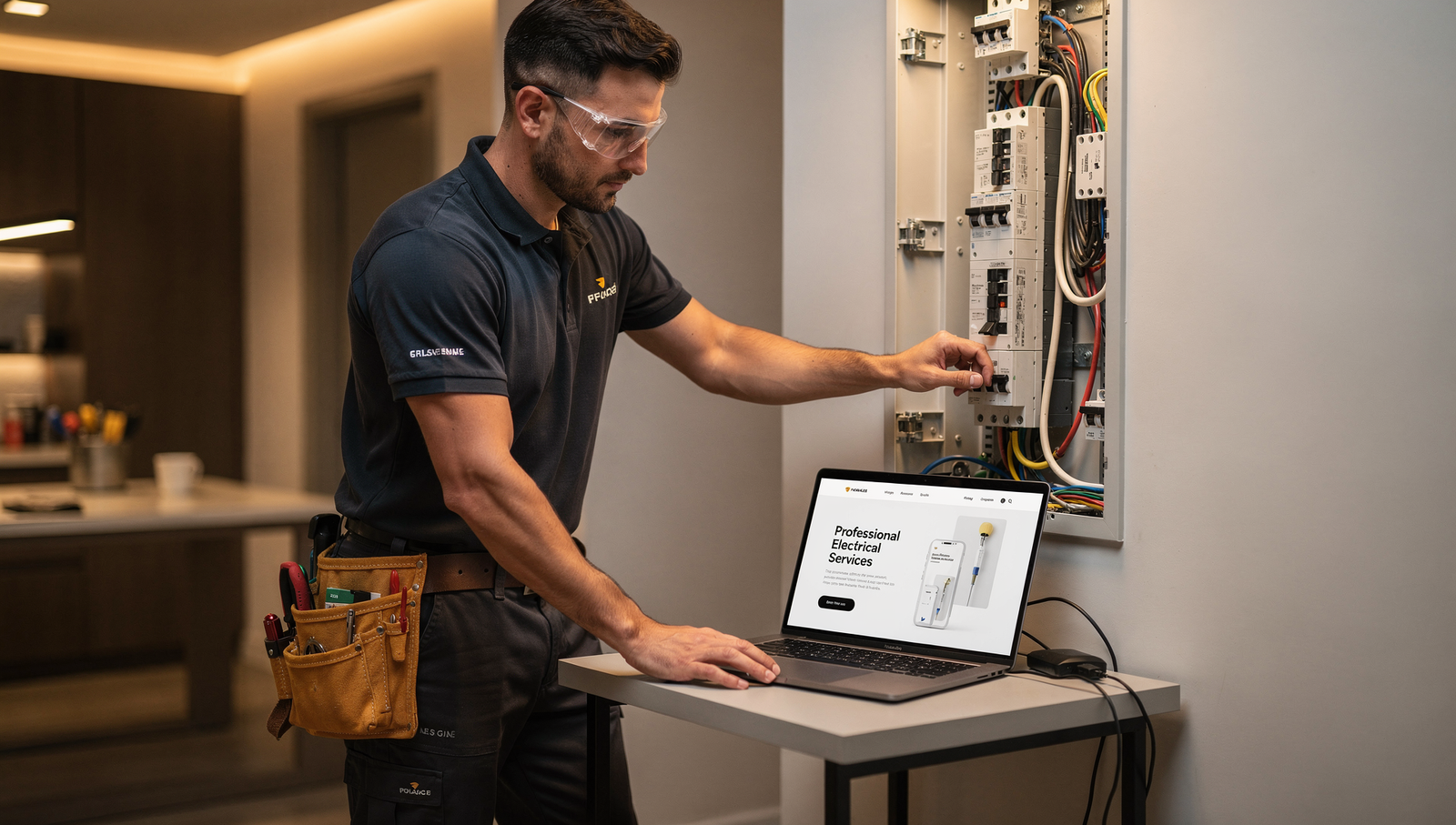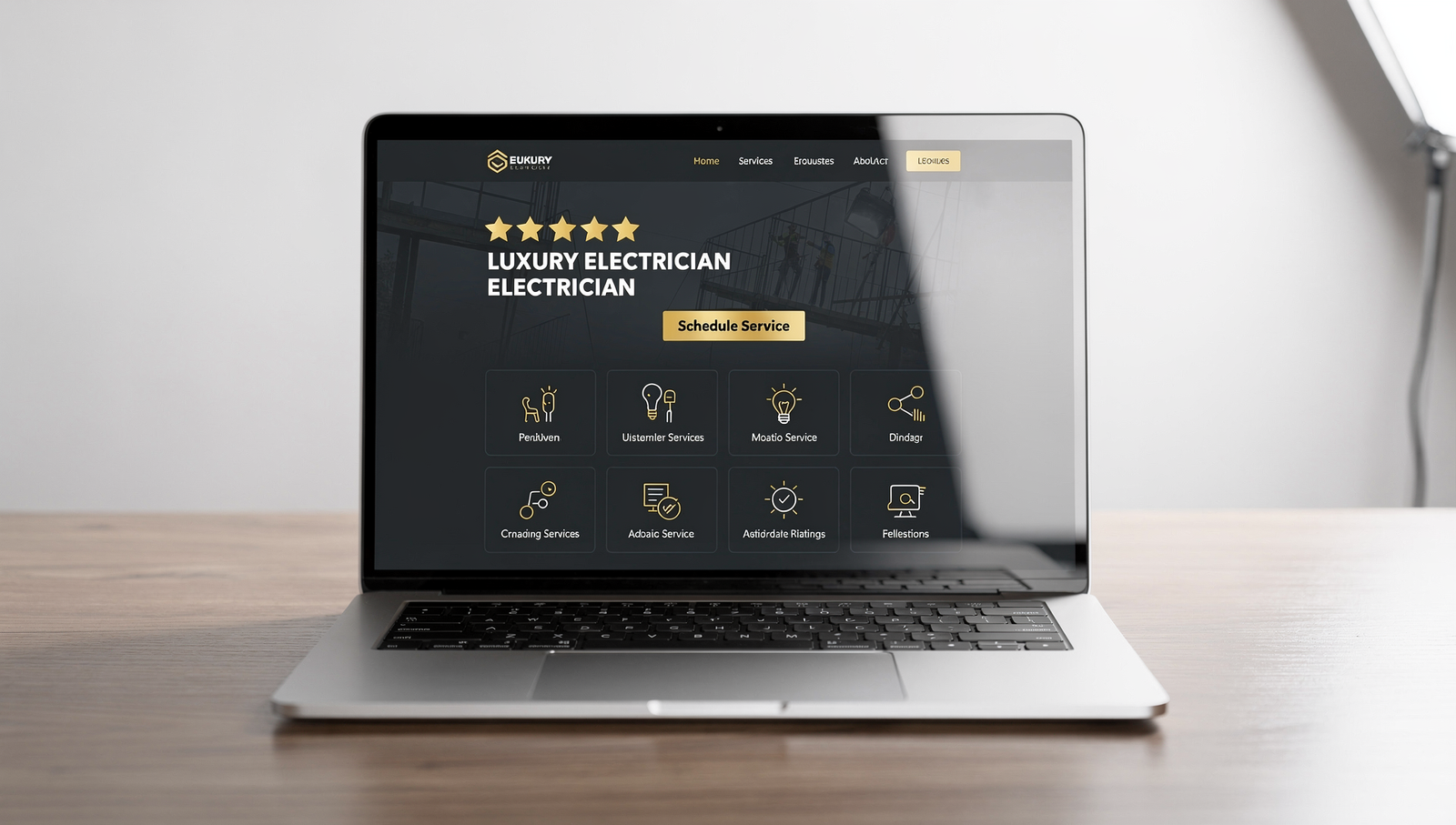10 Blog Structure Secrets That Get Realtors More Closings
Watch the video to learn how to implement MLS search into your blog posts for maximum SEO!
Want More Clients Fast?
Steal This Website Rescue Kit to Get More Clients, More Calls, and More Sales on Autopilot
In this guide, you’ll learn the exact blog post structure for SEO in real estate. By the end, you’ll know how to write posts that get noticed, bring in traffic, and attract the kinds of clients you actually want to work with.
If you’re a real estate agent trying to get found online, you’ve probably noticed one thing: there’s no shortage of competition. Every other agent in your city is trying to grab the attention of buyers and sellers on Google. So how do you stand out?
One of the best ways is by writing blog posts that are structured perfectly for SEO. A strong structure makes your content easier for Google to understand, which means you’ll rank higher, and it makes your posts easier for potential clients to read, which means they’ll stick around long enough to trust you.
Why Blog Post Structure Matters for Realtors
Think about showing a home. If the rooms are cluttered and confusing, buyers leave. If the layout flows, they picture themselves living there.
Your blog is the same way. When it’s structured clearly with the right SEO elements, Google understands it and shows it to more people. According to HubSpot, businesses with blogs generate 67% more leads than those without. For realtors, that could mean dozens of extra buyers and sellers finding you online every year.
The Key Elements of Blog Post Structure for SEO in Real Estate
Here’s the blueprint you can follow every time you write:
-
A Keyword-Focused Title
If your post is about first-time homebuyers in Miami, don’t call it “Buying a House: My Thoughts.” Instead, use a keyword like “Miami First-Time Homebuyer Guide: Everything You Need to Know in 2025.” This helps you rank when someone types “Miami first-time homebuyer” into Google. -
An Engaging Introduction
The intro should hook your reader. Use a story, stat, or relatable question. For example: “Did you know nearly 40% of homebuyers start their search online without ever calling an agent first?” This makes people curious and encourages them to read more. -
Clear Subheadings
Break your post into sections. For example, if you’re writing a blog about “How to Stage Your Home for a Quick Sale,” your subheadings might be:-
Declutter and Depersonalize
-
Focus on Curb Appeal
-
Lighting Makes All the Difference
Each subheading signals to Google what your content covers, and it makes your blog easy to skim.
-
-
Short, Easy-to-Read Paragraphs
Your clients aren’t reading legal contracts. They want quick tips. Stick to 2–3 sentence paragraphs. -
Internal Links
Link to other posts on your site. If you wrote about staging, link to your other post on “Best Image Sizes for Real Estate Websites” so readers (and Google) see your site as an authority. -
Images with Alt Text
Use property photos, infographics, or market charts. Add descriptive alt text like “staged living room in Dallas home” so search engines understand the image. -
A Clear Call to Action
Every post should guide readers to take the next step with you. Examples:-
“Download my free home value report today.”
-
“Book a call to discuss your buying strategy.”
-
“Join my newsletter for local market updates.”
-
Example: A Realtor Blog Post Structured for SEO
Imagine you’re writing a blog called “How to Buy a Home in Denver with Zero Down.”
We are going after the longtail keyword: “buy a home in devner”
Here’s how the structure could look:
-
Headline: How to Buy a Home in Denver with Zero Down: What Every Buyer Needs to Know
-
Intro: Share a quick story of a client who bought with zero down.
-
Subheadings:
-
Make sure your target keyword is in the first subheading in the blog post – “Buying a Home in Denver with No Down Payment”
-
Who Qualifies for Zero Down Programs in Denver
-
Step-by-Step Process for Getting Started
-
Common Mistakes to Avoid
-
-
Internal Link: Connect to your blog about “Top Mortgage Programs for First-Time Buyers.”
-
CTA: “Contact me today to see if you qualify for a zero-down mortgage.”
This structure checks all the SEO boxes while providing real value to your readers.

Writing for Google and Clients at the Same Time
It’s tempting to stuff your blog with keywords, but that’s like over-decorating a house with flashy furniture…it feels forced.
Instead:
Use keywords naturally within your content.
Write as if you’re explaining to a client over coffee.
Answer the exact questions your clients type into Google, like “best time to sell a house in Atlanta” or “how much do I need to buy a house in Phoenix?”
That way, your blog works for both search engines and humans.
Common Mistakes Realtors Make
Here are mistakes that hold agents back:
Writing blogs that don’t target a specific keyword
Using clever titles that clients never search for
Forgetting to include a local angle (neighborhood names, city keywords)
Ending posts without a clear next step for readers
Avoid these, and you’ll already be ahead of 90% of your competition.
How Blog Post Structure Fits Into Your Bigger SEO Plan
Your blog isn’t a standalone piece…it’s part of your digital ecosystem. When paired with:
A strong Google Business Profile optimization strategy
Local keywords targeting your neighborhoods
Paid advertising like Facebook Ads vs Google Ads
…your blog becomes a lead magnet that supports everything else you do online.
Action Plan for Realtors
Before you hit “publish” on your next blog post, run through this checklist:
Does my title include the keyword my clients are searching for?
Is my intro engaging and relatable?
Did I break the post into clear subheadings?
Are my paragraphs short and easy to skim?
Did I add at least one internal link?
Are my images optimized with alt text?
Did I end with a strong call to action?
If you can check all of these off, your blog is ready to compete at the top of Google.
Final Thoughts: Your Blog is a 24/7 Open House
Every blog post you write is like an open house that never ends. With the right structure, it will bring in buyers and sellers even while you’re out showing homes, spending time with family, or sleeping.
And here’s the best part…you don’t have to figure out how to structure blog posts for real estate alone. At Digital Dream Homes, we build luxury real estate websites that include SEO-rich blogs designed to get you more clients. If you’d like help structuring your site and content so it ranks higher, book a free consultation today.
Matt Pieczarka
Want a Free Website Audit?
Fill out your information below and we will send you a personal screen share video of tips on how to make your actual website better!
See How Many Closings You're Losing to Zillow!
Click Here to Use our Calculator to See How Many Clients Zillow is Taking From You Per Year!
Some More Posts About Strategy and Growth…
- Marketing Plan For Small Business 2026 Every Owner Should Copy
- Benefits of Professional Website for Small Business: The Hidden Profits
- How to Get More Referrals for Small Local Business Fast
- Customer Retention Strategies Small Business Owners Never Hear About
- How Small Businesses Compete Online And Actually Win In 2026
- Blogging for Small Business Growth: 2026 Profit Multiplier
- Sales Funnel For Small Business Website That Prints Money
- What Is A Listicle And Why Your Website Desperately Needs One
- Strategic Website Design That Turns Small Business Clicks Into Clients
- The Simple Blueprint to Explosive Small Business Growth
9 Functional Medicine Website Designer Tips to Grow Faster
9 Functional Medicine Website Designer Tips to Grow Faster Watch the video to learn one psychological SEO trick to build more trust and get more leads from your website! Wan
7 Functional Medicine Website Design Moves That Get Patients
7 Functional Medicine Website Design Moves That Get Patients Watch the video to learn about the best layout to get more leads and patients guaranteed! Want More Clients Fast
11 Electrician Website Designers That Turn Clicks Into Calls
11 Electrician Website Designers That Turn Clicks Into Calls Watch the video to learn the best layout for best results! https://youtu.be/XaEbNPZxi0U?si=kT1Cru8S2SMJSPNx Want More C
11 Electrician Website Help Fixes That Turn Clicks Into Calls
11 Electrician Website Help Fixes That Turn Clicks Into Calls Watch the video to learn how to structure your website for the best return on investment! https://youtu.be/XaEbNPZxi0U
11 Electrician Web Design Company Questions to Ask
11 Electrician Web Design Company Questions to Ask Watch the video to learn the best website layout for the most lead conversions! https://youtu.be/XaEbNPZxi0U?si=SgxjOWdd7F6f4Mtg
13 Electrician Website Templates That Turn Clicks Into Paid Jobs
13 Electrician Website Templates That Turn Clicks Into Paid Jobs Watch the video to learn the best template layout for the best results! https://youtu.be/XaEbNPZxi0U?si=rGg1WlUWlmH
11 Electrician Website Services That Bring In More Calls
11 Electrician Website Services That Bring In More Calls Watch the video to learn the best website layout for the best results https://youtu.be/XaEbNPZxi0U?si=rGg1WlUWlmHTg73v Want
12 Electrician Website Upgrades That Win More Jobs
12 Electrician Website Upgrades That Win More Jobs Watch the video to learn the best website layout to get the most bang for your buck! https://youtu.be/XaEbNPZxi0U?si=uFqsnSFvenQ1
5 Electrician Website Design Company Upgrades That Win Jobs
5 Electrician Website Design Company Upgrades That Win Jobs Electrician website design that earns trust fast and drives more calls. See the must-have upgrades and book more jobs. h









